Pioneering designer Gae Aulenti’s illustrious career is celebrated in a new Milan retrospective
Gae Aulenti, the Italian designer, architect and original thinker, is celebrated with a dedicated retrospective at Milan’s Triennale Design Museum
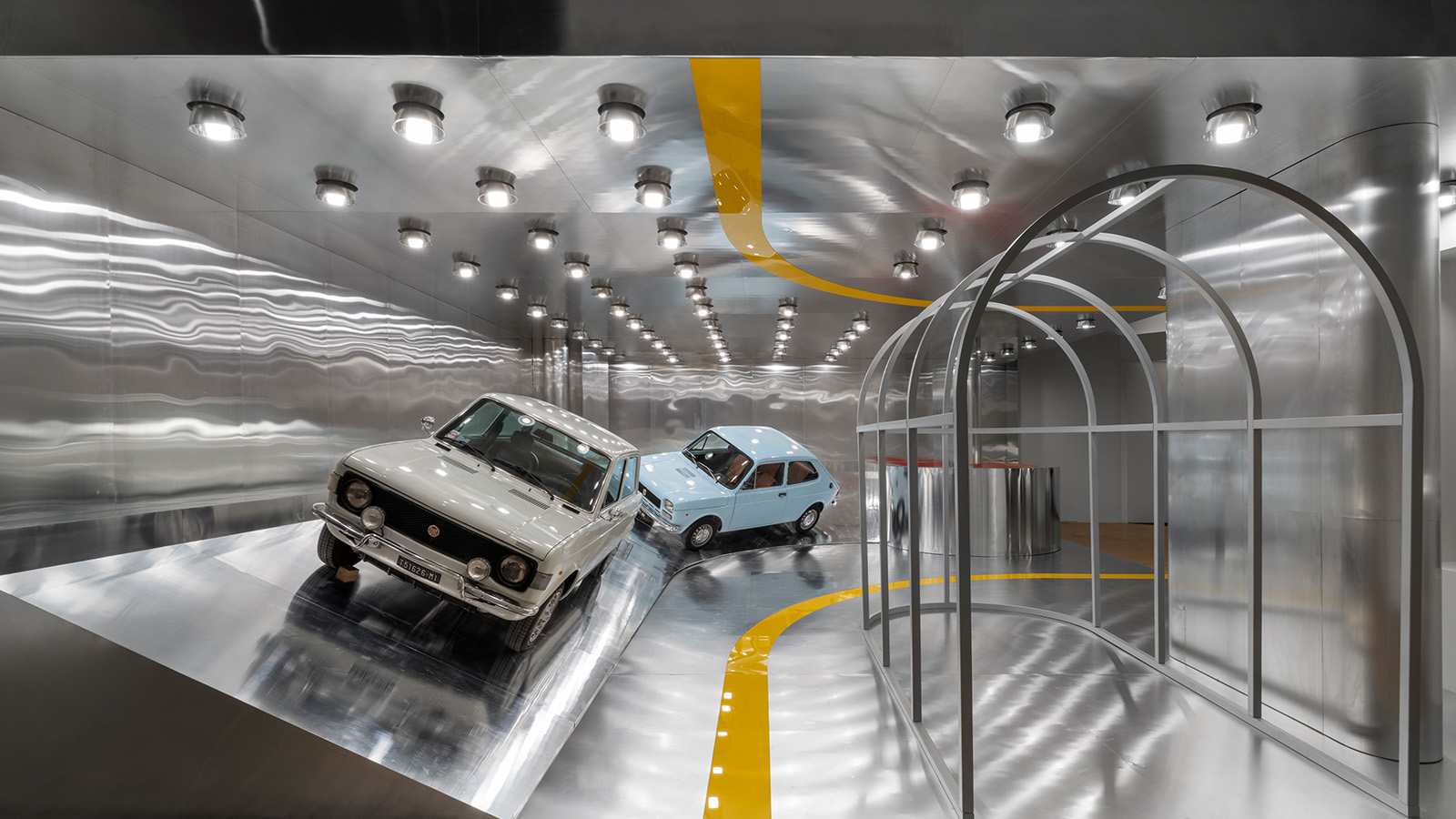
Throughout her career, few cast a longer shadow on the landscape of Italian design than Gae Aulenti. An architect, designer and creative polymath, she was born in the Italian region of Friuli Venezia Giulia in 1927, where her father worked as a tax collector and her mother as a school teacher. In 1953, she graduated from Milan’s Politecnico University, beginning a career spanning six fruitful decades. Aulenti is perhaps best known for her innate ability to beautifully integrate art, design and architecture. She could shift easily from large-scale public projects to intimate domestic spheres, and then toggle between styles without effort.
Her furniture, for instance, went from referencing Art Nouveau decorative details – as in the swooping shape of her bentwood ‘Sgarsul’ rocking chair from 1962 – to incorporating industrial and found materials, such as in her 1993 ‘Tour’ table made of tempered glass and four working bicycle wheels. However, the fil rouge that binds all her work is a clear-headed view towards the future – a fact that is now being celebrated in a wide-ranging exhibition, ‘Gae Aulenti (1927-2012)’, at Milan’s Triennale Design Museum, which runs until 16 October 2024.
‘Gae Aulenti (1927-2012)’, at Milan’s Triennale Design Museum
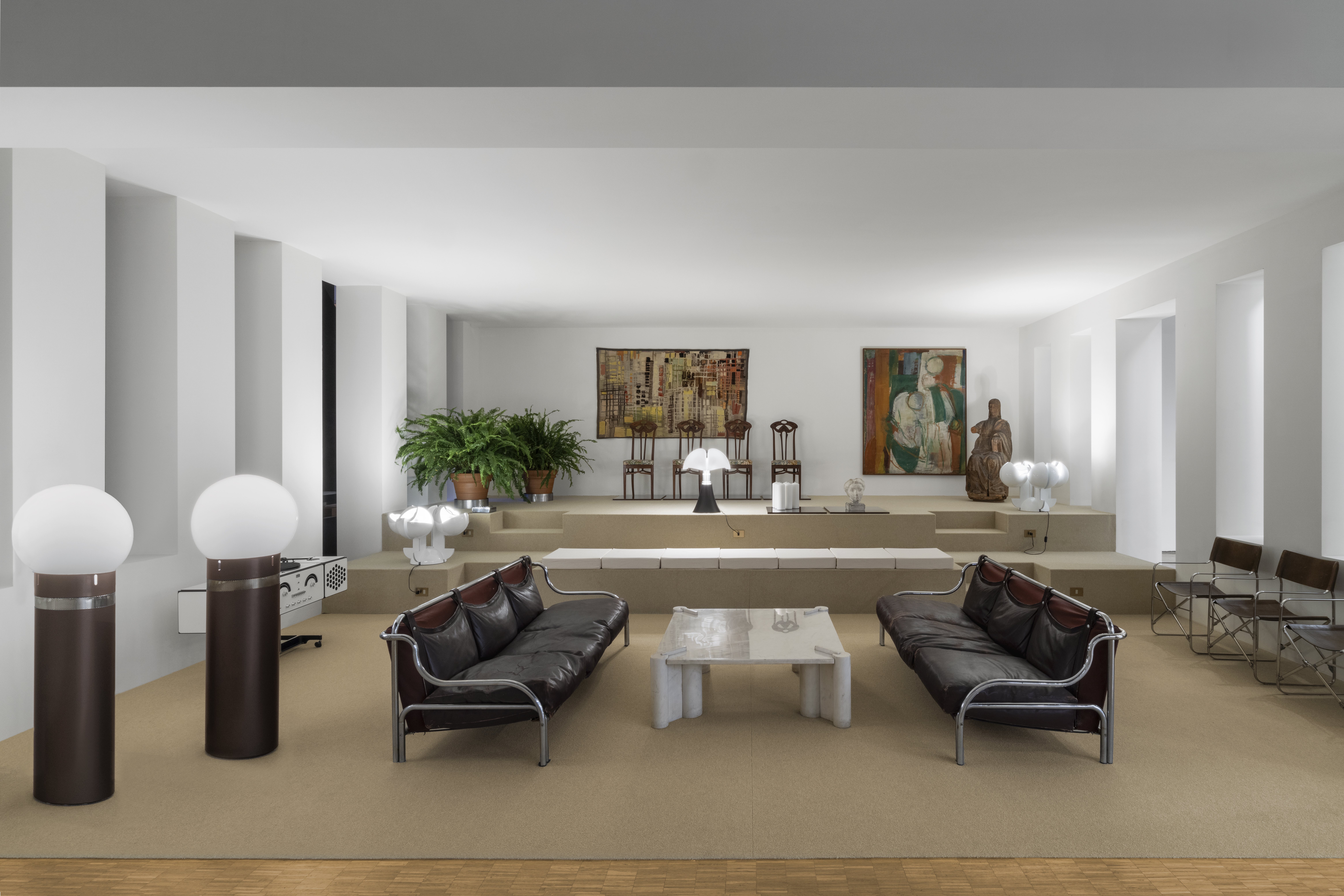
A recreation of the Brion family’s home in San Michele di Pagana
The wide-ranging exhibition takes a two-pronged approach to documenting Aulenti’s work. The first consists of a series of 1:1 scale reproductions of several of her most influential interior and architectural projects. Visitors enter into the exhibition by passing through a recreation of her ‘Arrival at the Seaside’ installation for the 13th Triennale exhibition in 1964, a series of sketches of robed women blown up to life size and set against a reflective background beneath an undulating textile ceiling.
Moving deeper into the gallery, visitors are then deposited into the Olivetti showroom in Buenos Aires, which Aulenti designed in 1968. Here, a set of risers act as a display for Olivetti’s products, many of which were designed by Aulenti, including her ‘King Sun’ lamp, made for Kartell in 1967, as well as typewriters by the likes of Ettore Sottsass and Marcello Nizzoli.
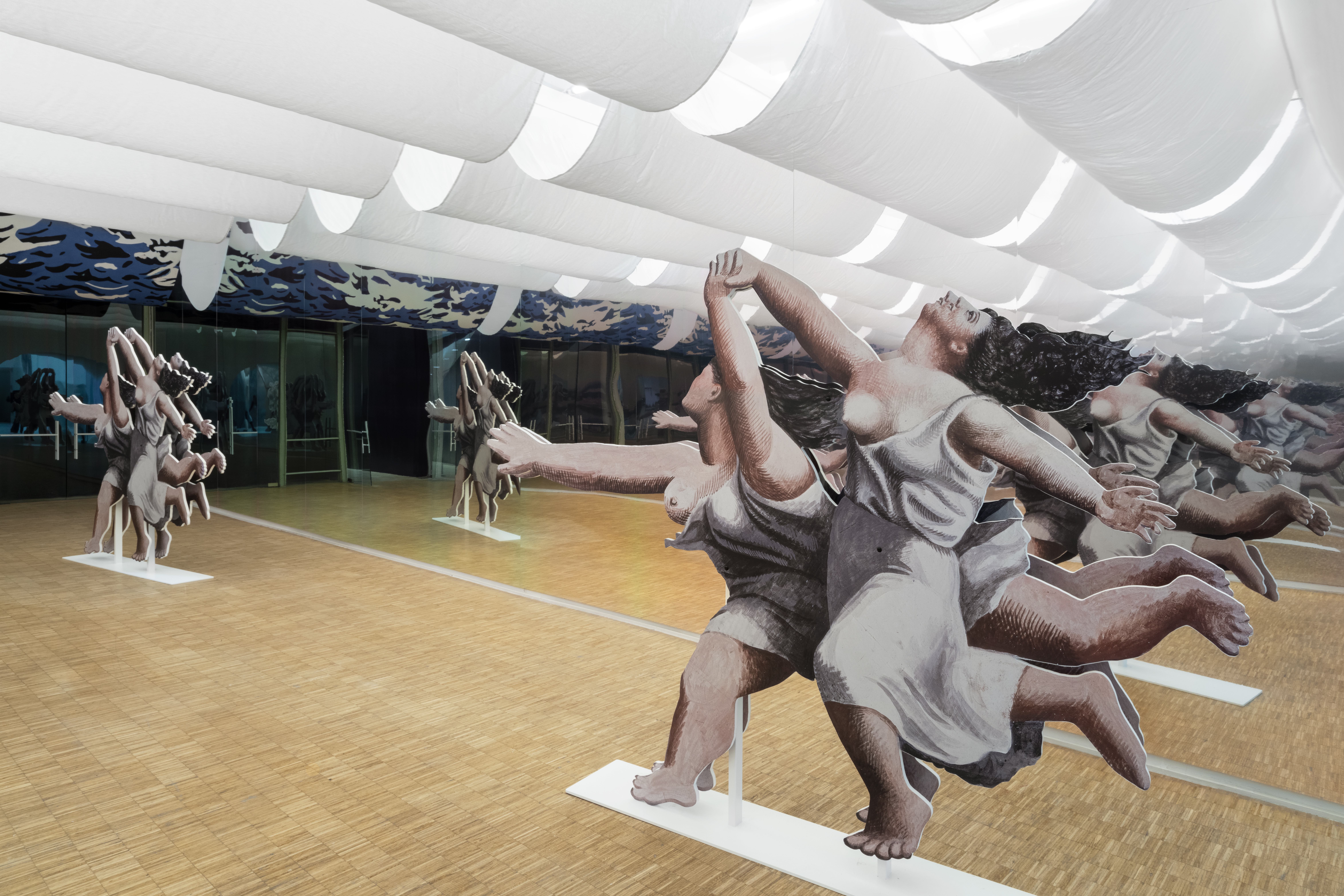
The show also recreates Aulenti's ‘Arrival at the Seaside’ installation from 1964
A medley of interiors from the 1970s and 1980s sits in the centre of the gallery. There is the Fiat showroom on Zurich’s Beethovenstrasse, designed in 1973, where Aulenti propped up a pair of then-brand-new Fiat Rallys on a sloping floor reminiscent of a race track. The scene then shifts into a recreation of the Brion family’s home in San Michele di Pagana.
The white, low-lit living room, complete with Aulenti’s bent aluminium ‘Stringa’ sofa from Poltranova and a marble ‘Jumbo’ table designed for Knoll, is arranged like a museum, where sculptures, plants, candles and a selection of her lamps – the 1968 ‘Oracolo’ for Artemide, and the ‘Pipstrello’ from 1965 and the ‘Ruspa’ from 1971, both for Martinelli Luce – have been placed atop a set of carpeted steps. Also included are sections of the Musée d’Orsay in Paris from 1986, her design for an underground station in Naples, sets for the production of Elektra by Richard Strauss at La Scala and, as visitors exit the gallery, a slice of the San Francesco d’Assisi airport in Umbria, which Aulenti designed in 2012.
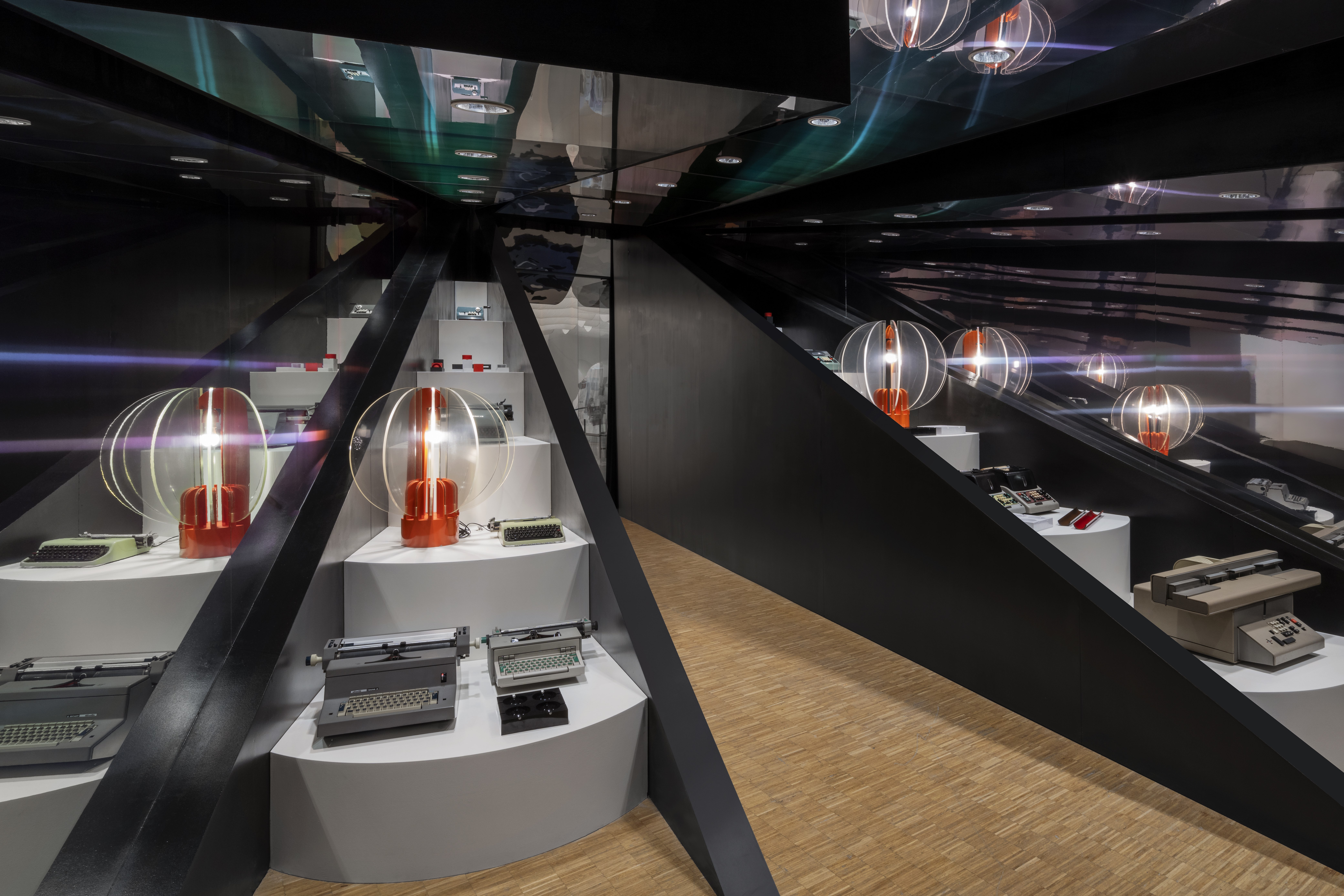
‘King Sun’ lamps in the recreated Buenos Aires Olivetti showroom, which Aulenti designed in 1968
The exhibition also includes a chronological account of Aulenti’s life and major projects. Organised around the perimeter of the space are photographs, drawings, letters, models and other ephemera from her meticulously preserved archive: from plans for her first-ever house design in San Siro, Milan to an hour-by-hour itinerary for a trip to India. But perhaps the most moving element of the exhibition is its location.
Wallpaper* Newsletter
Receive our daily digest of inspiration, escapism and design stories from around the world direct to your inbox.
Throughout her career, Aulenti returned again and again to Palazzo dell’Arte, where the Triennale Design Museum is located: from staging her ‘Arrival at the Seaside’ installation in 1964, to restructuring of the museum’s galleries in 1990, and later receiving the Medaglia d’Oro award for lifetime achievement in design, shortly before her death in 2012. Now, this new exhibition cements her lasting role as a titan of Italian design.
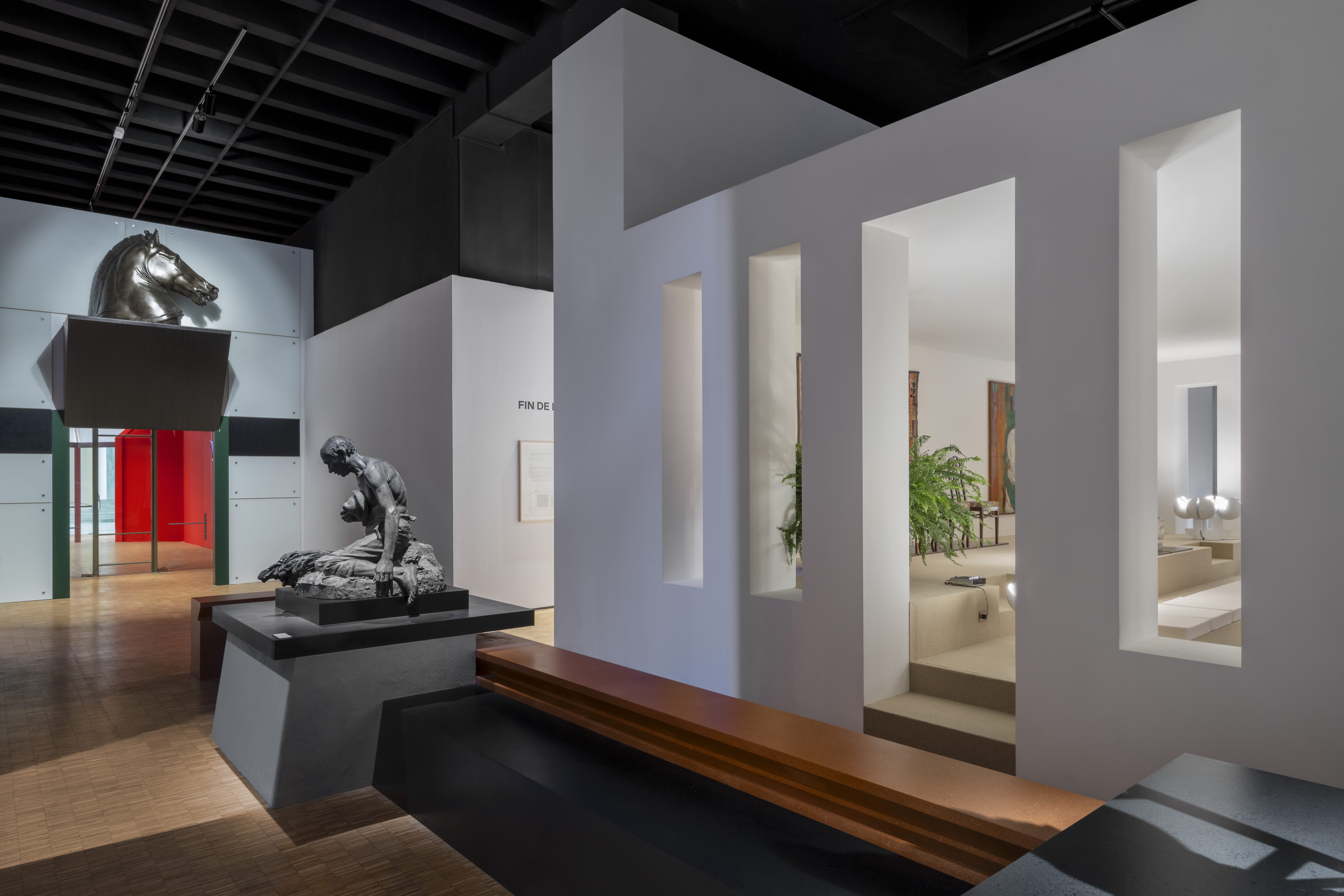
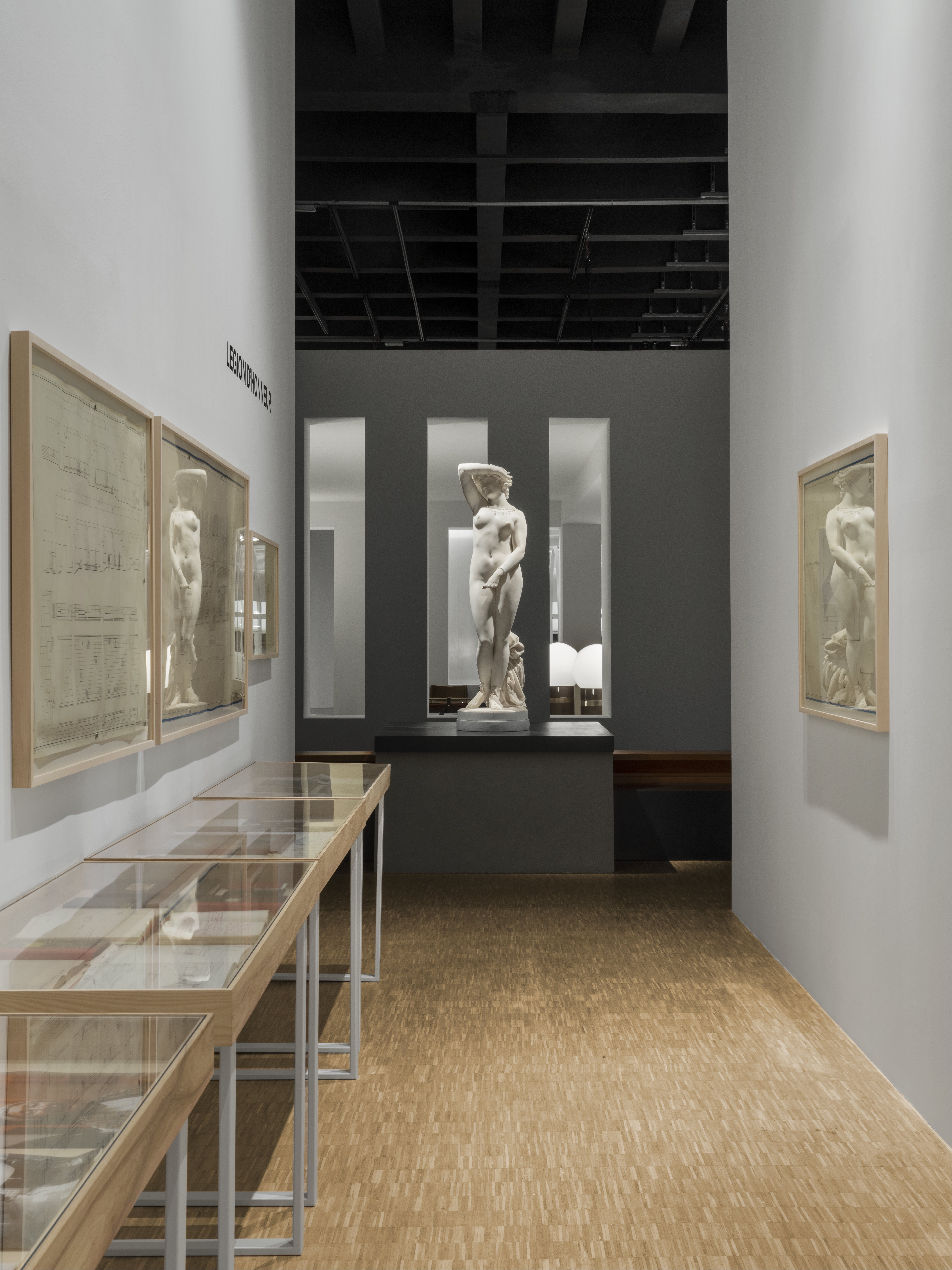
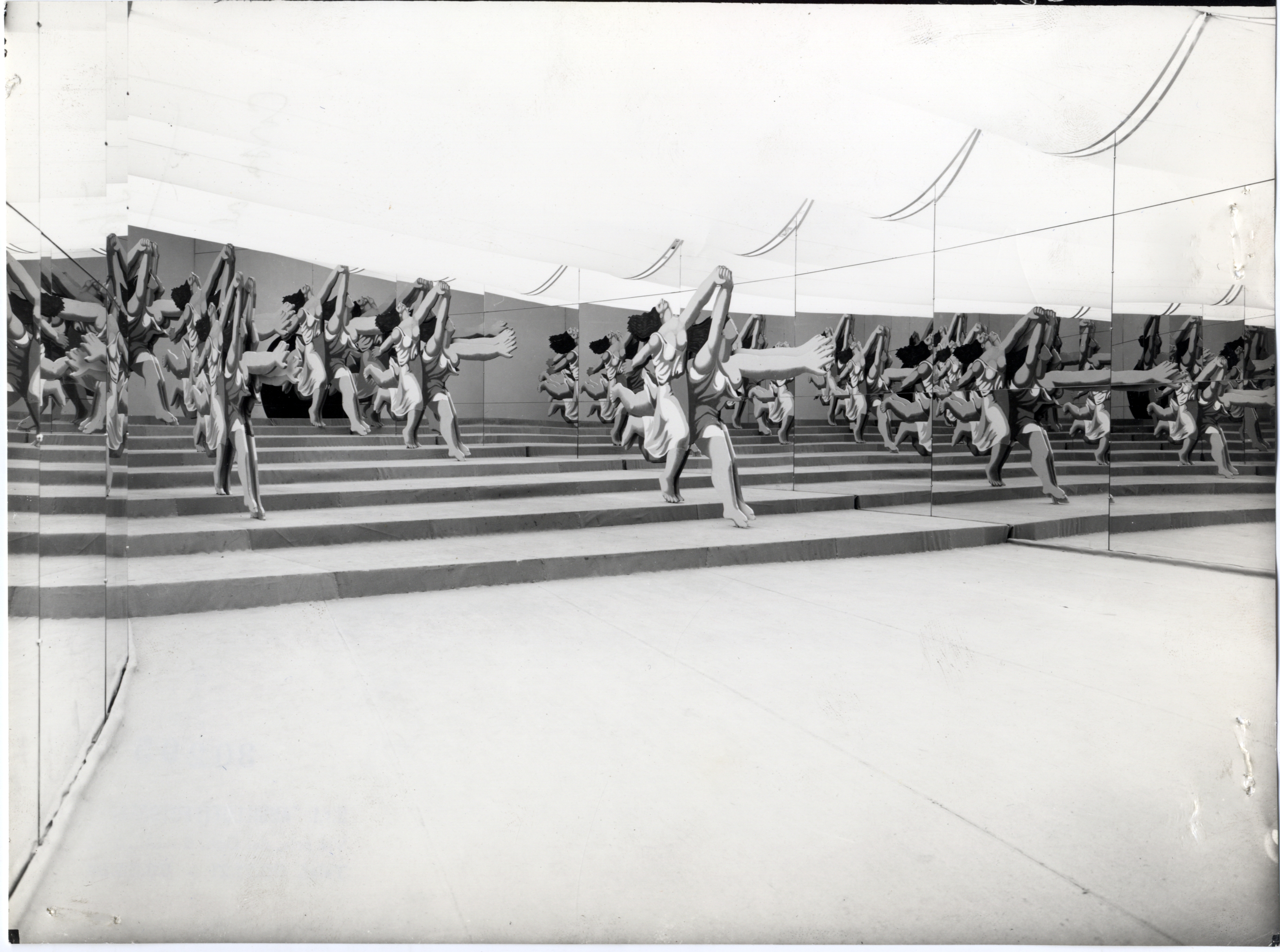
The original staging of Arrivo al Mare (‘Arrival at the Seaside’), at the XIII Triennale, 1964
‘Gae Aulenti (1927-2012)’ is on display at Triennale Milano until 12 January 2025 triennale.org
Laura May Todd, Wallpaper's Milan Editor, based in the city, is a Canadian-born journalist covering design, architecture and style. She regularly contributes to a range of international publications, including T: The New York Times Style Magazine, Architectural Digest, Elle Decor, Azure and Sight Unseen, and is about to publish a book on Italian interiors.
-
 Put these emerging artists on your radar
Put these emerging artists on your radarThis crop of six new talents is poised to shake up the art world. Get to know them now
By Tianna Williams
-
 Dining at Pyrá feels like a Mediterranean kiss on both cheeks
Dining at Pyrá feels like a Mediterranean kiss on both cheeksDesigned by House of Dré, this Lonsdale Road addition dishes up an enticing fusion of Greek and Spanish cooking
By Sofia de la Cruz
-
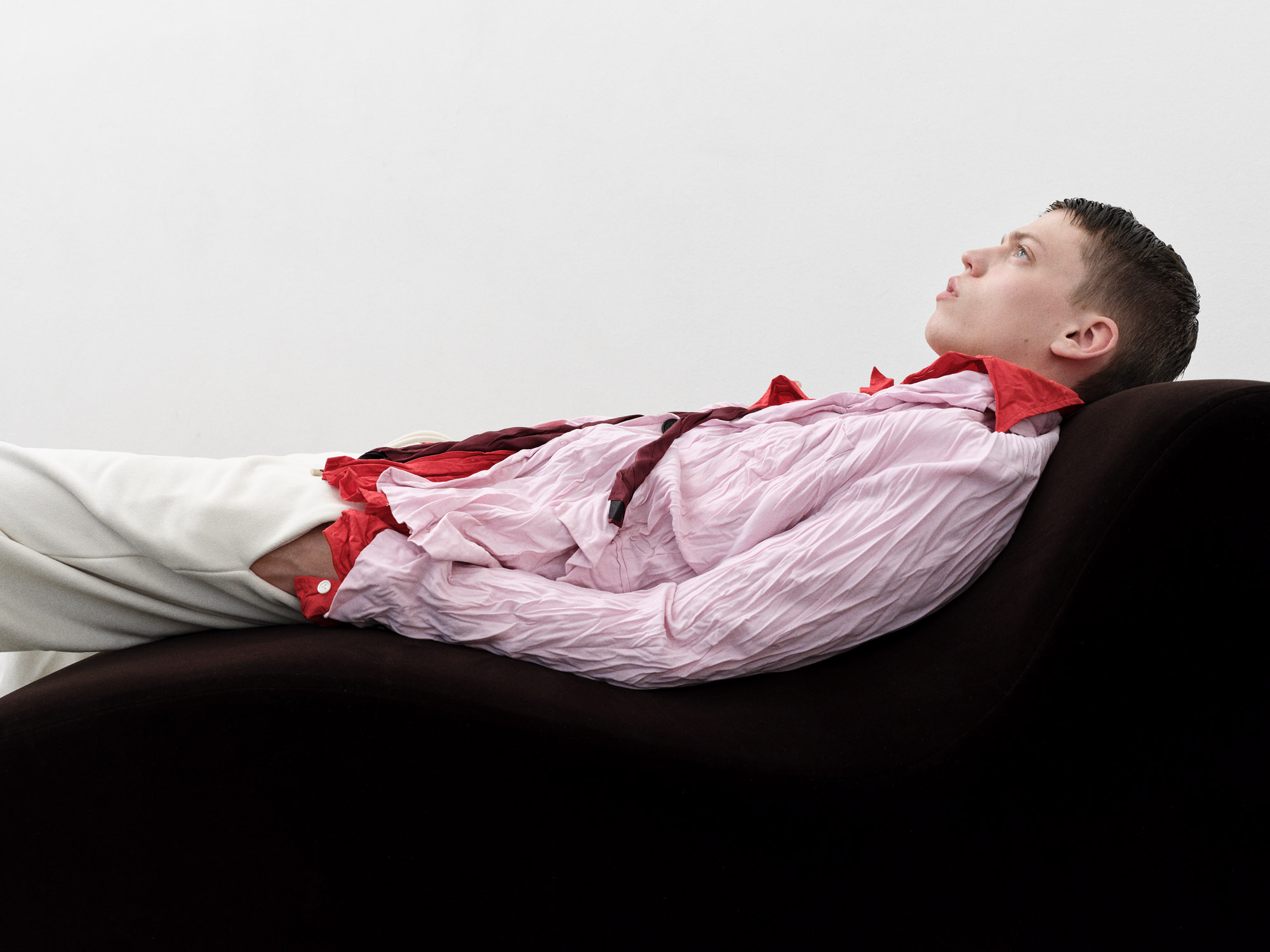 Creased, crumpled: S/S 2025 menswear is about clothes that have ‘lived a life’
Creased, crumpled: S/S 2025 menswear is about clothes that have ‘lived a life’The S/S 2025 menswear collections see designers embrace the creased and the crumpled, conjuring a mood of laidback languor that ran through the season – captured here by photographer Steve Harnacke and stylist Nicola Neri for Wallpaper*
By Jack Moss
-
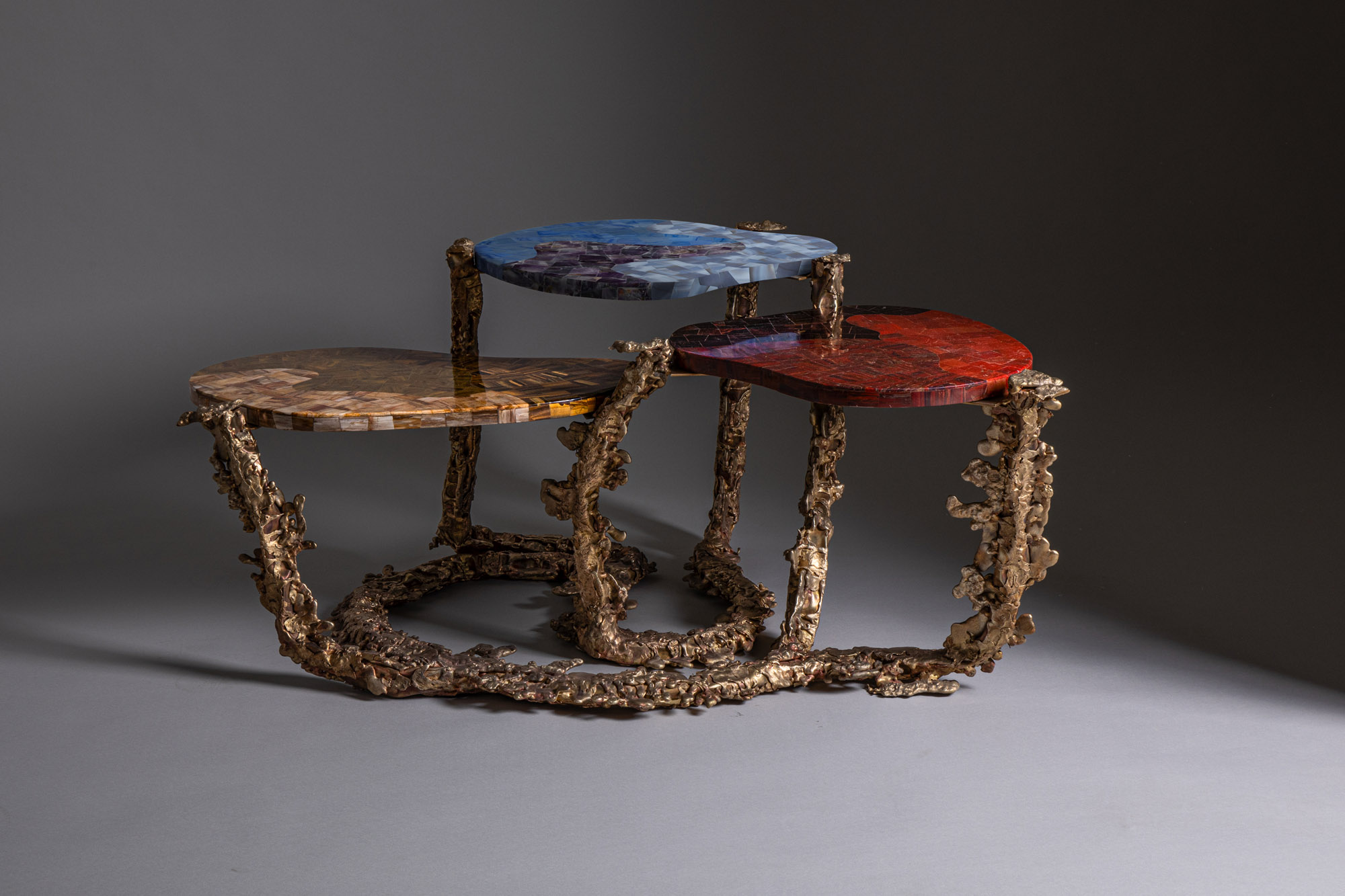 Inside the Shakti Design Residency, taking Indian craftsmanship to Alcova 2025
Inside the Shakti Design Residency, taking Indian craftsmanship to Alcova 2025The new initiative pairs emerging talents with some of India’s most prestigious ateliers, resulting in intricately crafted designs, as seen at Alcova 2025 in Milan
By Henrietta Thompson
-
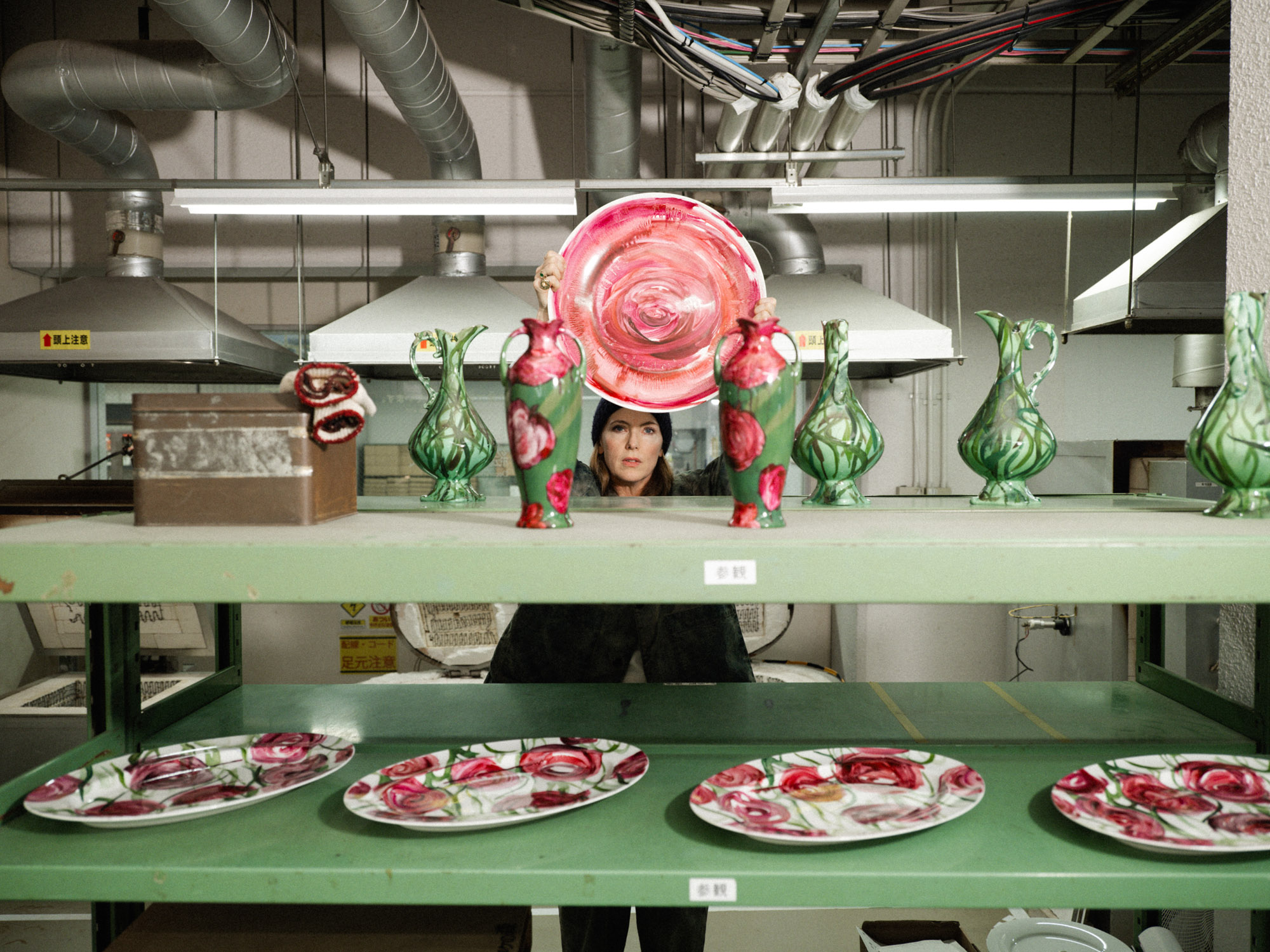 Faye Toogood comes up roses at Milan Design Week 2025
Faye Toogood comes up roses at Milan Design Week 2025Japanese ceramics specialist Noritake’s design collection blossoms with a bold floral series by Faye Toogood
By Danielle Demetriou
-
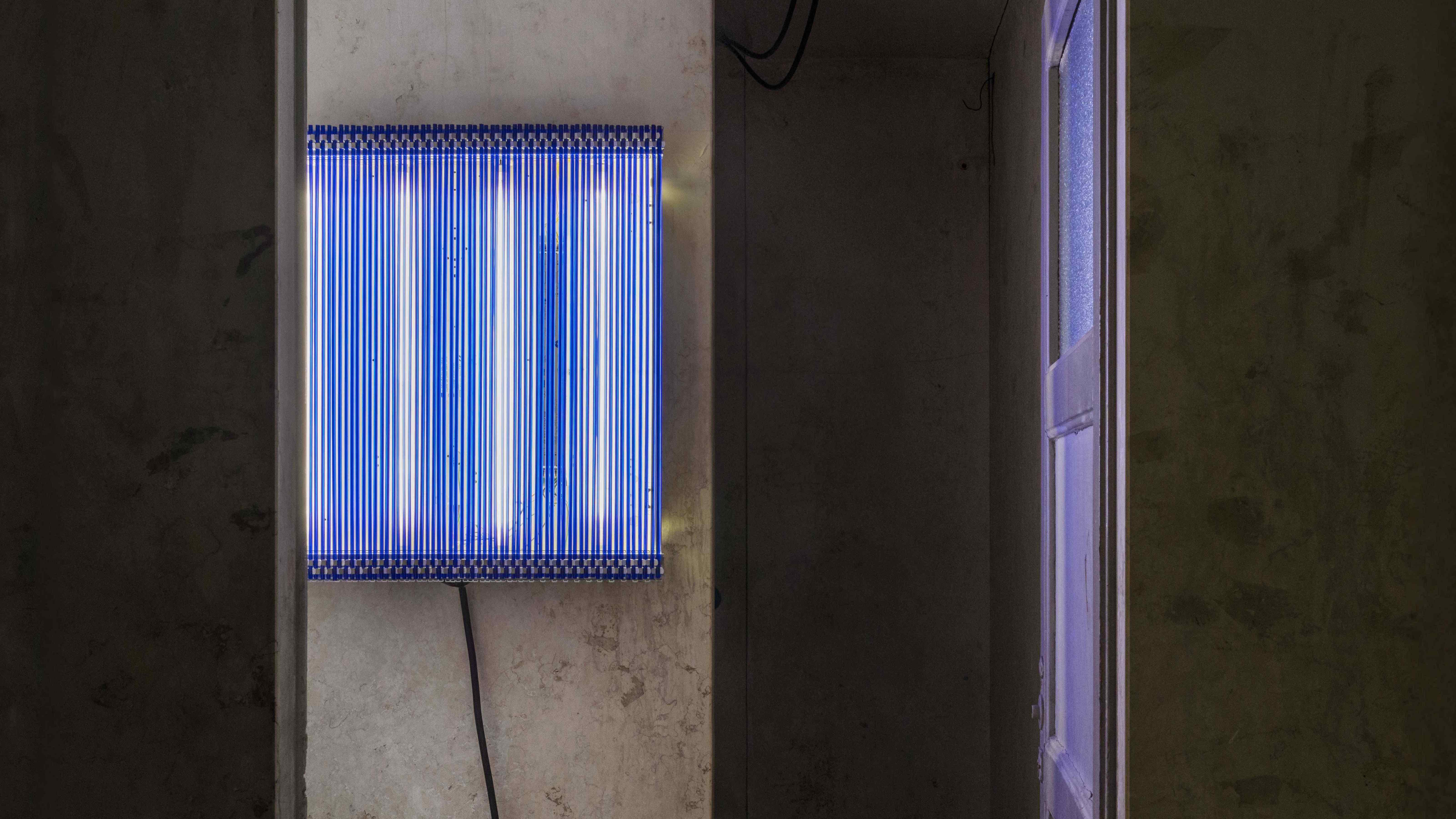 6:AM create a spellbinding Murano glass showcase in Milan’s abandoned public shower stalls
6:AM create a spellbinding Murano glass showcase in Milan’s abandoned public shower stallsWith its first solo exhibition, ‘Two-Fold Silence’, 6:AM unveils an enchanting Murano glass installation beneath Piscina Cozzi
By Ali Morris
-
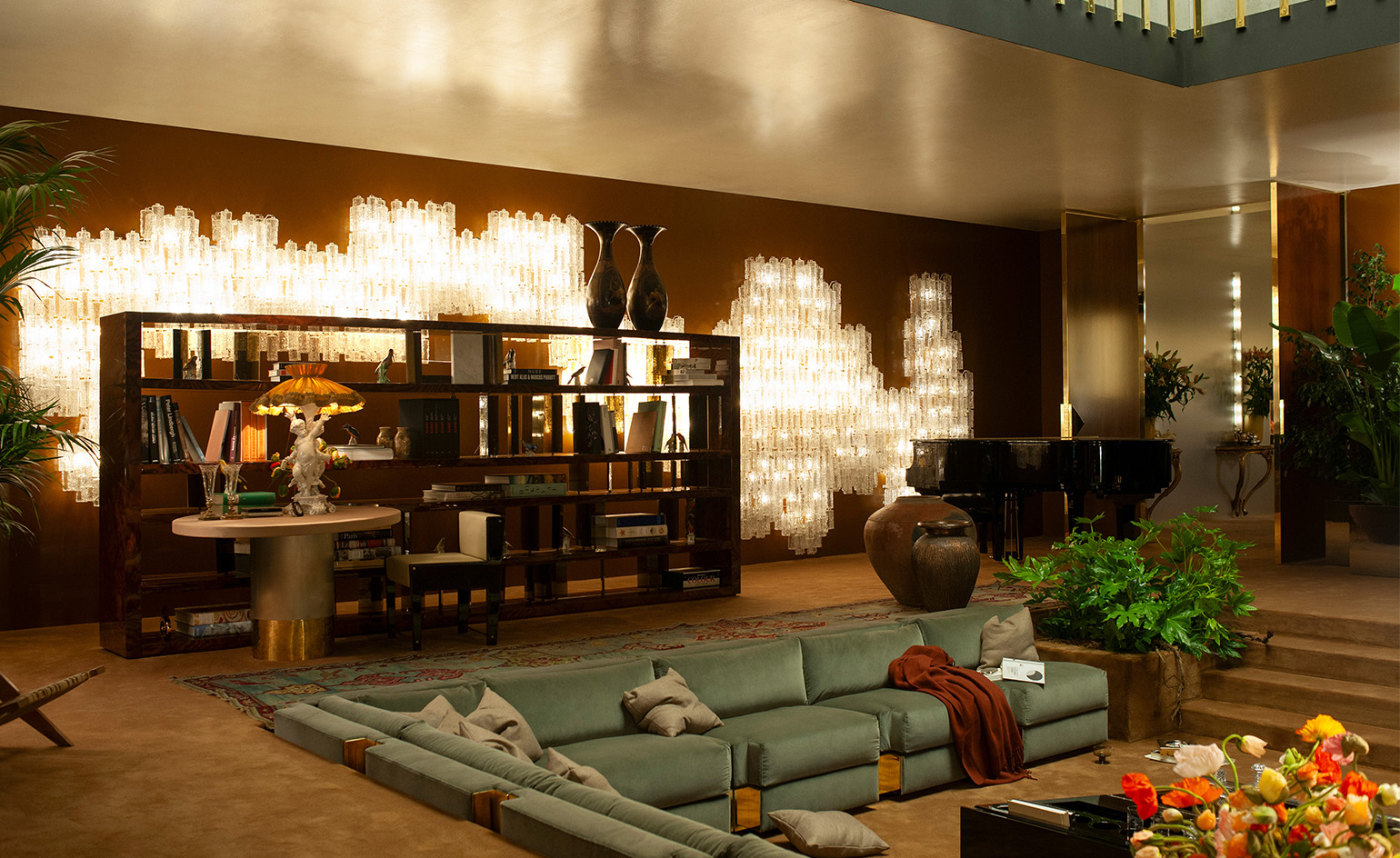 Dimoremilano and Loro Piana channel 1970s cinema in decadent Milan display
Dimoremilano and Loro Piana channel 1970s cinema in decadent Milan displayAt Milan Design Week 2025, Dimorestudio has directed and staged an immersive, film-inspired installation to present new furniture and decor for Loro Piana
By Dan Howarth
-
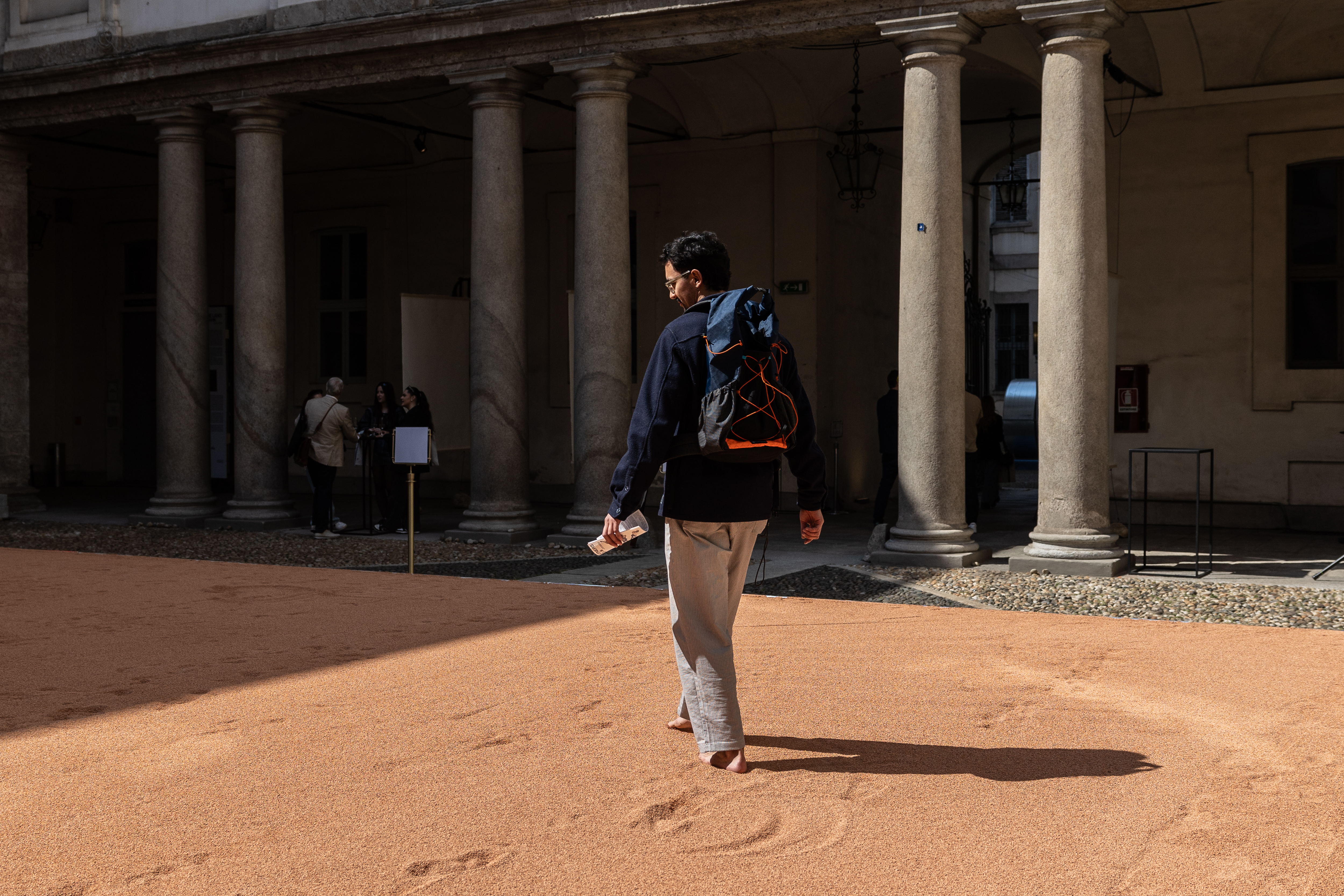 In Milan, MoscaPartners presents a poetic exploration of ‘migration’
In Milan, MoscaPartners presents a poetic exploration of ‘migration’Alongside immersive work by Byoung Cho, MoscaPartners’ Milan Design Week 2025 display features an accessible exhibition path designed for visually impaired visitors
By Cristina Kiran Piotti
-
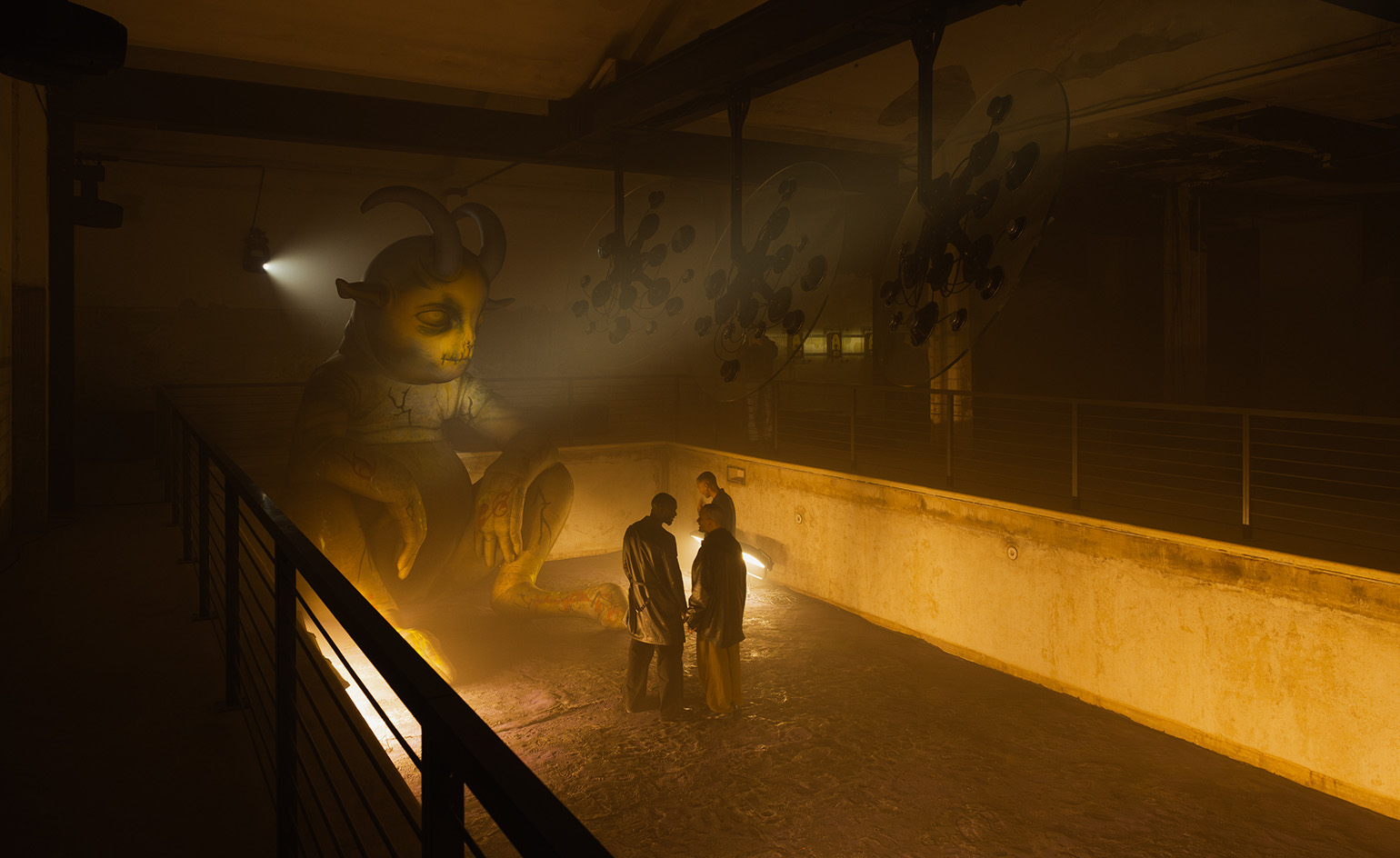 The making of PAN and Nike’s euphoric, club-inspired collaboration at Milan Design Week
The making of PAN and Nike’s euphoric, club-inspired collaboration at Milan Design WeekAlongside a new Air Max 180 release, ‘The Suspended Hour’ display sees Berlin record label PAN imagine the unfolding of a club night, from dusk until dawn
By Craig McLean
-
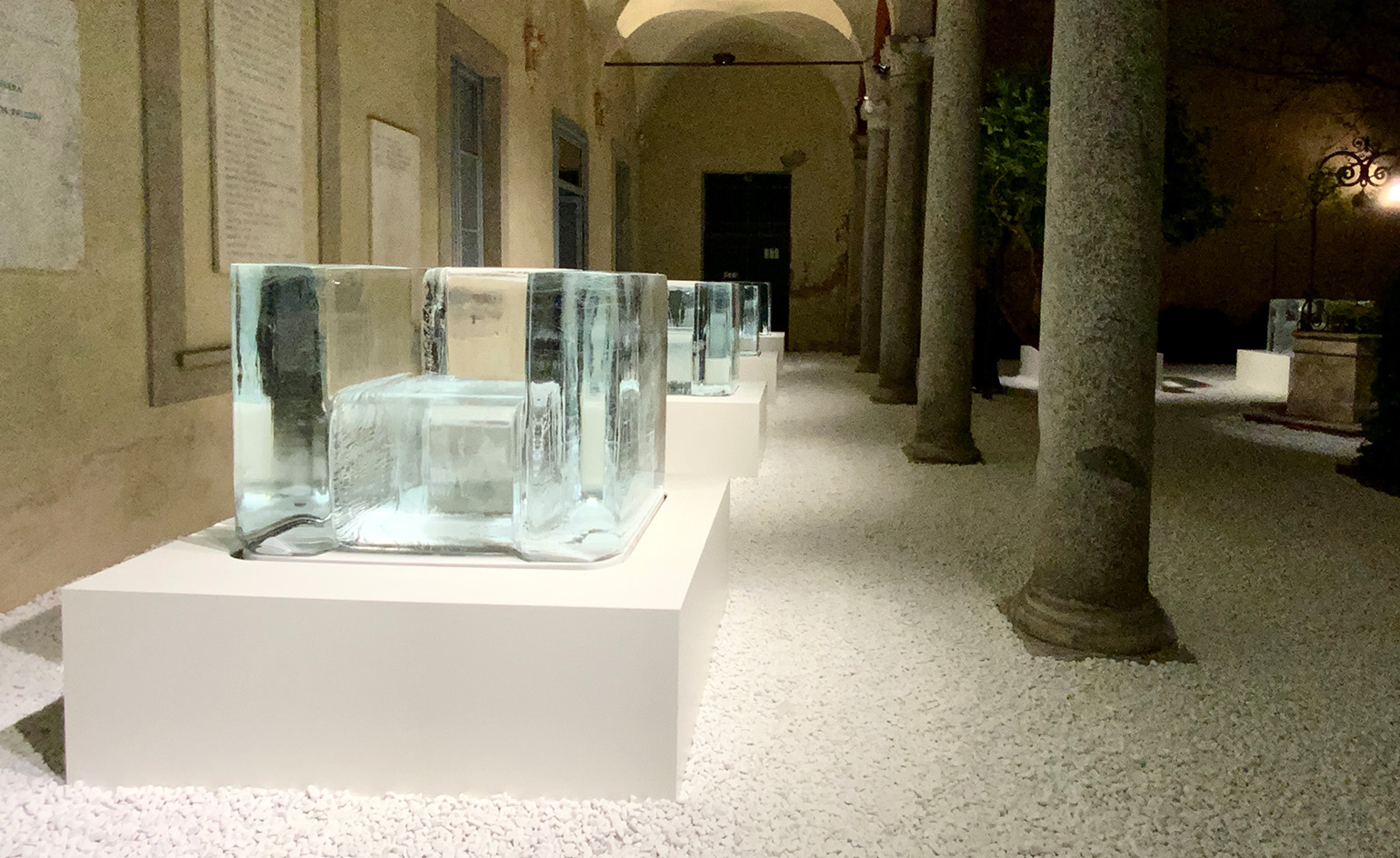 Tokujin Yoshioka’s ephemeral ice furniture is made to melt in Milan
Tokujin Yoshioka’s ephemeral ice furniture is made to melt in MilanTransparent chairs of frozen water slowly disappear during Milan Design Week 2025, in an expression of light by Japanese artist Tokujin Yoshioka
By Danielle Demetriou
-
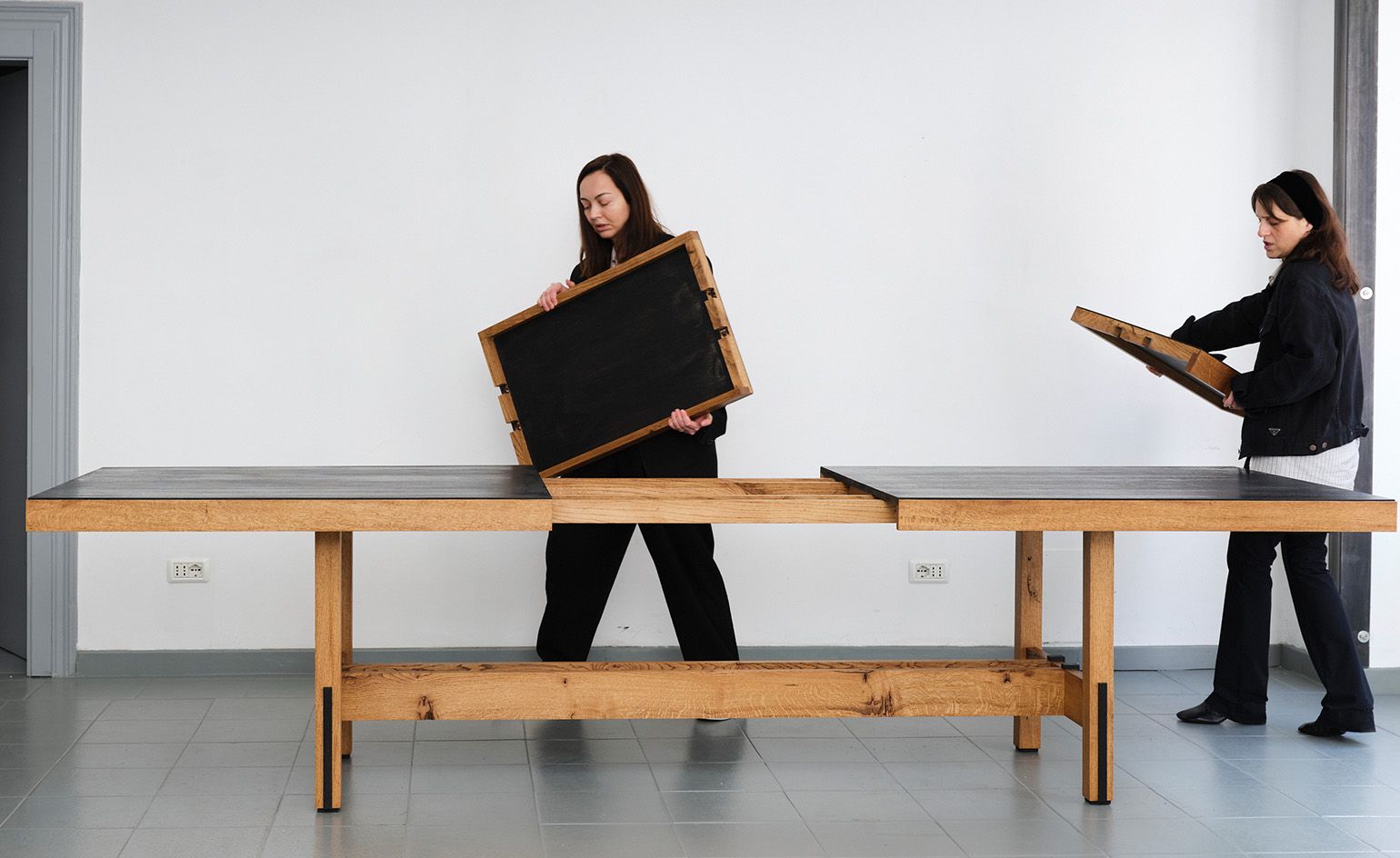 In Milan, Rooms Studio examines Georgia’s shifting social landscape
In Milan, Rooms Studio examines Georgia’s shifting social landscapeExpandable tables that reference recent government protests and lamps held together with ‘chewing gum’ feature in the Tbilisi-based studio’s Milan Design Week 2025 installation
By Dan Howarth